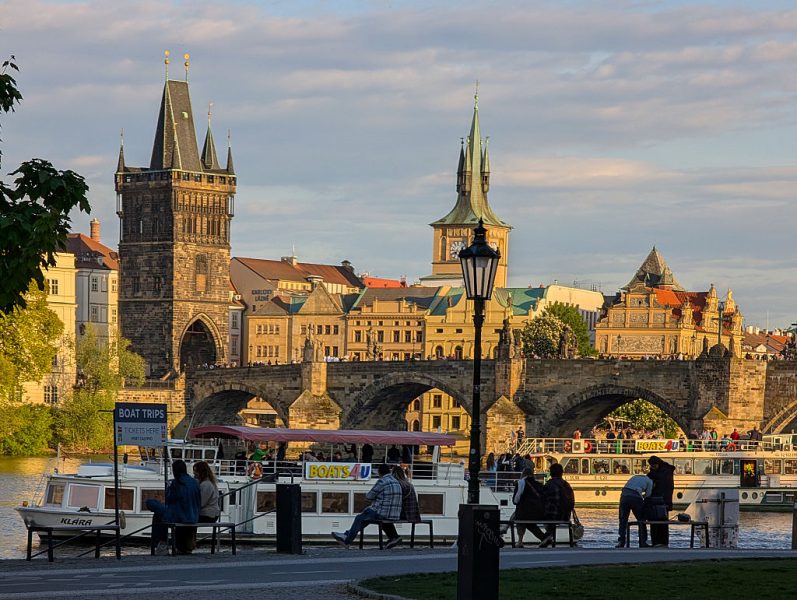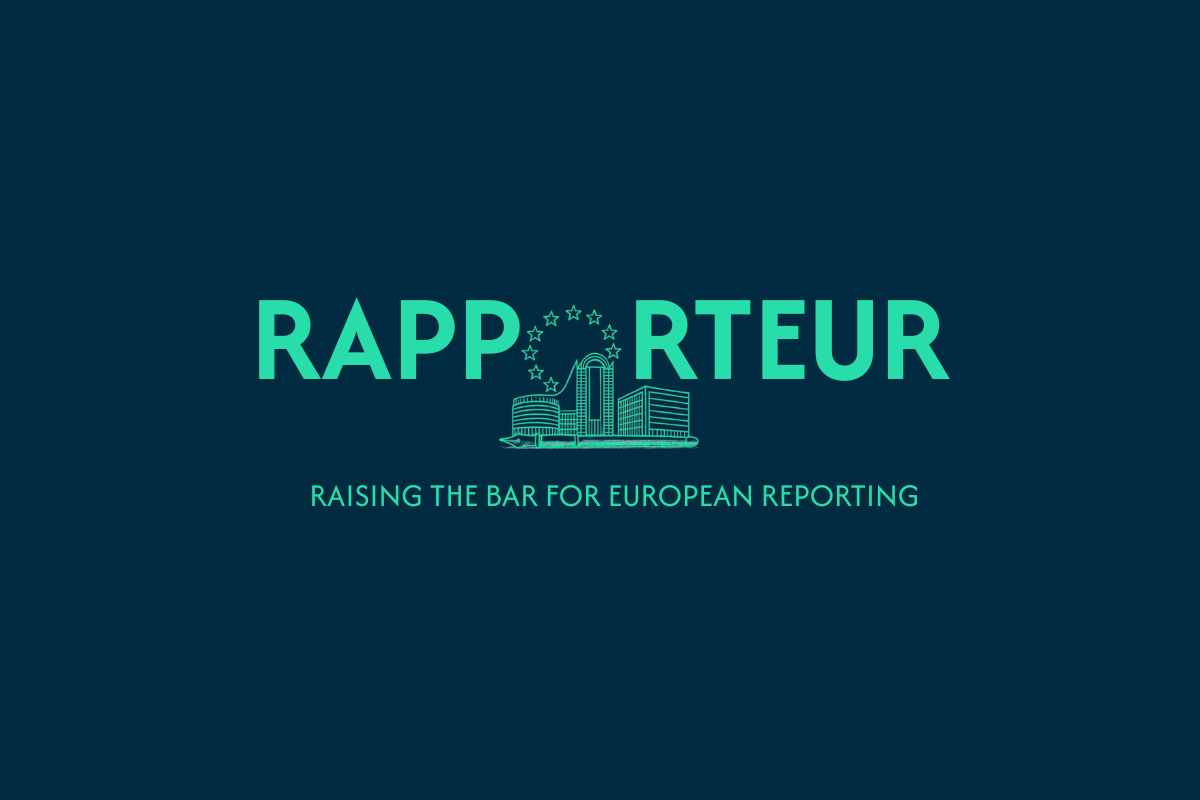Welcome to Rapporteur, the newsletter formerly known as The Capitals. I’m Eddy Wax, joined by Nicoletta Ionta in Brussels. Each day we’ll bring you up to speed on the stories shaping EU and European politics.
Need-to-knows:
France: Authorities brace for nationwide protests with 800,000 expected on the streets
Parliament: Two Italian lawmakers tied to Qatargate rejoin the S&D after suspension
Environment: Ministers meet on the 2035 climate target as Denmark pushes a UN workaround
But first, a quick pulse check on EU-UK relations…
A message from the Euractiv Jobsite
A new and improved Jobsite!
Trusted by the Brussels bubble for over a decade, the Euractiv Jobsite is the go-to platform for careers in EU affairs. Whether you’re recruiting top talent or looking for your next opportunity, we connect institutions, NGOs, think tanks, consultancies and more across the EU job market.
In the capital
Just as Britain rolls out the red carpet for Donald Trump, its government has been pursuing a quieter diplomatic track in Brussels.
Nick Thomas-Symonds, Labour’s minister for EU relations, has been in town meeting officials to advance the tentative “reset” of EU-UK ties laid out in May, a plan that set off Britain’s loud and Brexity press.
On paper the rapprochement looks tidy enough: Brussels and London aim to reach a food standards deal by 2027, craft a youth mobility scheme, and link up their emissions trading schemes. Despite French resistance, the EU yesterday also gave the green light to talks on letting British arms makers access the bloc’s SAFE defence loans scheme.
But all this is studiously incremental rather than transformative.
Now, with Brexit architect Nigel Farage topping the polls and PM Keir Starmer fighting for survival, the populist tide has made the government even more timid about strengthening ties with Brussels.
Starmer is dead against rejoining the single market, customs union, or freedom of movement. He warns that any substantial step back toward the EU would be electoral suicide in a country where criticising Brexit remains fraught (despite polls suggesting many Britons have Bregrets).
Meanwhile, pro-European Labour backbenchers have internally accused the government of shirking parliamentary scrutiny and not going far enough.
MP Stella Creasy, in Brussels this week for a UK in a Changing Europe conference, slammed her own party for dismantling the House of Commons committee that could have examined the new EU relationship.
Yes, Thomas-Symonds denounced those “driven only by narrow ideology” in a recent speech in Bruges – his tone was all about “rigorous and achievable timetables,” not urgency. Starmer’s mantra is that Britain need not choose between Europe and America.
Brexit wounds have barely healed. When EU leaders list the partners they’re eager to deepen ties with to offset a weak US trade deal, Britain is never mentioned. The new relationships the EU is building are with Mexico, Mercosur, and India.
For all the talk of a reset, the switch has never been fully turned on.
Denmark pulls a climate rabbit out of its hat
The Danish trick. A most European solution – pitched by Denmark as currently chair of EU meetings – could spare the bloc an embarrassing appearance at the UN General Assembly next week. Environment ministers are set to meet in Brussels today in a last-minute bid to find common ground.
With ministers unable to agree on a 2040 climate target, the EU risks arriving in New York without a 2035 goal. Poland, France, and Germany blocked a quick deal, leaving the bloc’s self-styled climate leadership in question.
Copenhagen’s workaround: a “statement of intent” that covers both sides’ ambition levels (66% and 72%) to present in lieu of a formal target, Nikolaus J. Kurmayer reports. “Is it as good as an NDC? Probably not. Is it much better than nothing? You bet,” said one senior EU diplomat, suggesting that the UN has been consulted in advance.
The 2035 climate targets are supposed to be assessed together in a global “synthesis report” ahead of COP30 in Brazil, which is expected to show the world far off track for keeping warming below 2°C, as agreed in Paris a decade ago.
Franco-British migration deal flounders
A British judge has temporarily blocked the UK from sending an Eritrean asylum-seeker who crossed the Channel back to France, delaying the first deportation under a new London-Paris deal.
The July pact between Emmanuel Macron and Starmer – a small-scale experiment dubbed “one in, one out” – lets Britain return one migrant only if another person with “ties to the UK” is allowed back from France.
Southern EU states had warned Brussels against such bilateral agreements, and Paris has recently hinted it could walk away if the pilot fails.
So far, just one case has tripped up the system, and ministers insist the deal is on track. “This is one person, it is not going to undermine the fundamental basis of this deal,” Cabinet minister Liz Kendall told Times Radio.
Qatargate questions surround two S&D MEPs
Two Italian EU lawmakers tied to the Qatargate investigation have rejoined the Socialists & Democrats group in the European Parliament after months of suspension – ahead of a formal decision on whether to lift their immunities. Parliament is expected not to do so, Rapporteur has learned.
Elisabetta Gualmini and Alessandra Moretti, both from Italy’s Democratic Party, were sidelined in March after Belgian prosecutors requested their immunities be lifted.
The S&D bureau, the group’s decision-making body, approved their return in July, with the move taking effect after the summer, according to five people familiar with the process.
Red tape relief? Copenhagen crunches the numbers
Denmark is urging the EU to better assess the impact of new legislation on businesses and government bodies, in a bid to “complement” the bloc’s drive to cut red tape.
In an official government document, seen by Euractiv’s Thomas Møller-Nielsen, Copenhagen welcomed Brussels’ efforts to “simplify” rules through its series of “Omnibus” proposals, but warned that too little attention is paid to the financial impact of new EU laws.
According to Denmark estimates, the legislative proposals currently under discussion among EU capitals could cost companies up to €85.9 billion a year, and public administrations €38.3 billion.
EU woos India but Russia stands in the way
The Commission on Wednesday pledged to strengthen economic and security links with India, part of its effort to hedge against US protectionism and rising tensions with China and Russia.
In a 19-page policy paper titled “New Strategic EU-India Agenda,” the bloc called closer cooperation “more important than ever.” Kaja Kallas warned that New Delhi’s close links to Moscow remain an “obstacle” but stressed it was vital not to “push” India further into “Russia’s corner.”
In a statement issued later in the day, the EU’s top diplomat offered a thinly veiled rebuke of India’s participation in this month’s “Zapad” military exercises in Belarus alongside Russia.
“The military participation of other countries in ZAPAD-2025, in the context of Russia’s war against Ukraine, including from the territory of Belarus, is a matter of serious security concern for the EU,” she said.
The capitals
PARIS 🇫🇷
More than 800,000 demonstrators are expected to march in France today against the government’s 2026 budget plan. The €44 billion in savings, announced by François Bayrou before he left office, are now the burden of his successor, Sébastien Lecornu, who has started negotiating next year’s budget. All trade unions have called for a general strike, the first since the 2023 pension protests. Schools, transport, energy, and waste services will be hit. Some 80,000 police will be deployed amid fears of violence from far-left groups.
BERLIN 🇩🇪
Lawmakers are set to approve the 2025 budget plan today, nine months after disputes over spending collapsed Olaf Scholz’s coalition. The plan sets aside record sums for infrastructure and bolsters defence outlays, but the Greens contend it fails to meet the country’s needs. They accuse Merz’s government of reneging on a deal with the Social Democrats to loosen debt limits in return for sweeping new investments. “It’s not that they don’t have enough money, they’re just giving it to the wrong people,” Katharina Dröge, the Greens’ parliamentary co-chair, said during debate.
MADRID 🇪🇸
In a rare public statement, King Felipe VI of Spain spoke out on the situation in Gaza, condemning the “brutal and unacceptable suffering” of the population and supporting a Palestinian state. The monarch made the remarks in a trip to Egypt with Foreign Minister José Manuel Albares, during which he also praised Cairo for its “mediating role” in the conflict.
STOCKHOLM 🇸🇪
PM Ulf Kristersson published an open letter to his Hungarian counterpart, Viktor Orbán, rejecting what he called attempts to drag Sweden into its election campaign. Kristersson invoked Sweden’s history of solidarity with Hungary – from Raoul Wallenberg’s rescue of Jews in 1944 to sheltering refugees after the 1956 uprising – and urged Orbán to uphold democracy and the rule of law. Linking Hungary’s past struggles to today’s war in Ukraine, he argued that “freedom always comes from the West.”
PRAGUE 🇨🇿
Czechia will end visa-free entry for Georgian officials starting in October, the government said Wednesday. Foreign Minister Jan Lipavský cited “human rights violations, crackdown on protests, and the weakening of civil society” in Georgia. The step follows an EU decision in January allowing member states to restrict access for Georgian officials; 16 countries, including France and Germany, have already done so. Georgian authorities continue raids against pro-European opposition figures after disputed elections last fall and the suspension of EU accession talks.
BRATISLAVA 🇸🇰
Slovak ministers on Wednesday condemned Czech Interior Minister Vít Rakušan for joining an anti-government protest in this capital, accusing him of meddling in domestic politics. A photo of Rakušan holding a “We are with you” banner went viral, drawing praise from demonstrators and opposition leader Michal Šimečka. Rakušan said he attended in a private capacity and had “no intention to interfere,” but Slovak officials called his presence inappropriate. Relations between the two countries have soured since Robert Fico returned to power last year.
Also on Euractiv
Czech election campaign ignited by EU climate levy on motor, heating fuel
An incoming EU levy on fuels for heating and road transport has become a central…
3 minutes

A looming EU fuel levy has become a flashpoint in Czech politics, where PM Petr Fiala is pressing for safeguards and opposition leader Andrej Babiš has pledged to block the scheme altogether, turning Europe’s climate agenda into a defining issue of next month’s election.
The fight over ETS2, which could raise household fuel bills, has galvanised both government critics and allies, underscoring how climate rules made in Brussels are now colliding with domestic politics.
The reparation loan is a test of European resolve
Simon Nixon is an independent journalist and publisher of the Wealth of Nations newsletter on…
5 minutes

In an op-ed for Euractiv, Simon Nixon, an EU political economy commentator who publishes the Wealth of Nations newsletter, argues that Ursula von der Leyen’s proposal to fund Ukraine through a “reparation loan” backed by frozen Russian assets may be Europe’s best option for sustaining Kyiv’s war effort.
Long dismissed as unrealistic, the plan is now gaining momentum in Brussels and Washington, even as legal risks, political opposition and Kremlin threats hang over the debate.
Agenda
➡ Von der Leyen addresses German business leaders
➡ Commissioner Tzitzikostas meets PM Meloni in Italy, as well as Austrian Chancellor Stocker
➡ EU environment ministers gather in Brussels
➡ Nationwide protests expected across France
Entre nous
Parliament official Maximilian Schröder will take up a new post in Kyiv, representing the institution within the EU delegation, whose building was recently damaged in Russian bombing. President Roberta Metsola visited the site on Wednesday.
The Commission is creating two new senior positions at the core of its operations: one focused on the next seven-year EU budget, the other on rule of law. Both “principal adviser” roles, still to be filled, carry the same rank and salary as a director.
Contributors: Thomas Moller-Nielsen, Charles Szumski, Elisa Braun, Sarantis Michalopoulos, Laurent Geslin, Inés Fernándes-Pontes, Aurélie Pugnet, Aneta Zachová, Alessia Peretti, Sarah N’tsia, Bryn Stole, Natália Silenská
Editors: Christina Zhao, Sofia Mandilara
